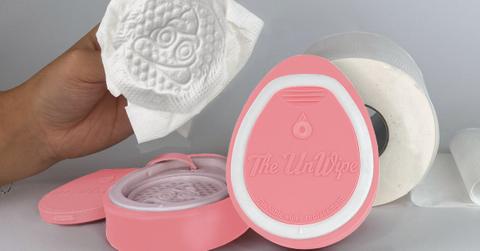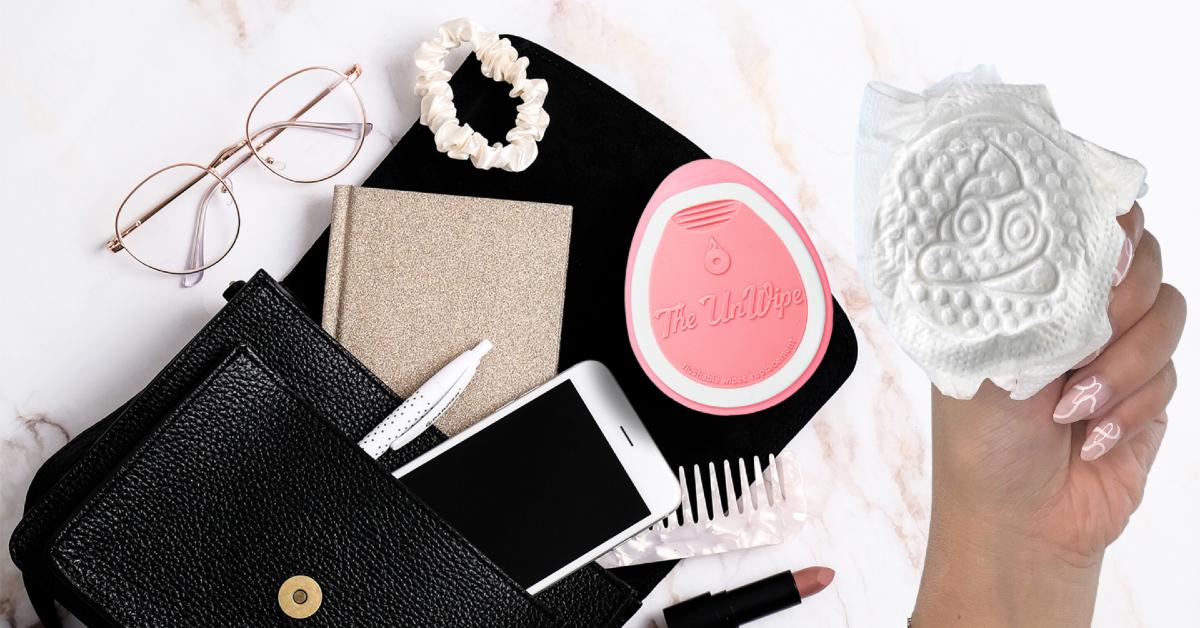Go No. 2 While Putting the Planet First: How The Unwipe Replaces "Flushable" Wet Wipes (Exclusive)
"Sustainable bathroom habits should clean thoroughly and safely without using plastic, chemicals, or ever-growing landfills."
Published June 3 2024, 5:02 p.m. ET

From the late 17th century/early 18th century "washing basin" bidets of France (used for genital cleansing in brothels) to the 21st-century Squatty Potty, bathroom and hygiene gadgets will forever see waves of invention and reinvention.
Today, many rely on "flushable" wipes for all their bathroom needs. As per Good Housekeeping, the BBC's 2019 docuseries War on Plastic with Hugh and Anita revealed that, aside from packaging, roughly 90 percent of wet wipes contain plastic.
The accumulation of flushed wipes can lead to dreaded fatbergs. Johns Hopkins Bloomberg School of Public Health described fatbergs as hard clumps of fat and oil mixed with non-flushable items like sanitary products and wet wipes. These non-biodegradable masses block sewers and can disrupt wastewater treatment.
Jim Kaslik, the CEO of The Unwipe company — which makes a patented product that turns your regular ol' toilet paper into a textured, safe, sustainable, and plastic-free wipe substitute — exclusively tells Green Matters via email that "toilet tissue is engineered to break down immediately."

"It has tiny fibers and almost no 'wet strength,'" he continues. "Wastewater treatment systems are built for that very type of cellulose fiber."
Kaslik goes on to explain why wipes don't break down like TP.
"They are wet in their (non-recyclable) packaging for months without breaking down. They have longer fibers, the fibers are of different materials than toilet tissue (and even plastic), and the resin that binds them together is stronger," he continues, noting that wipes "are directly adding microplastics by the trillions to the planet."
Because people value hiney hygiene and despise balled-up TP fragments sticking to their you-know-what, they may reach for wet wipes even with this knowledge.
"We found a way to transform regular toilet tissue — the best and the worst — to have strength, wetness, and texture," Kaslik says of the plastic-free device. The UnWipe's shell is made of hypoallergenic, non-porous, and non-toxic silicone, and its inner sponge is made of plant-based cellulose.
The UnWipe uses "the same amount of toilet tissue one would use anyway, but the end result is a cleaner, fresher backside."
In conversation with Green Matters, Jim Kaslik discussed the birth of The Unwipe and keeping plastic out of the bathroom.
This interview has been edited and condensed for length and clarity.
GREEN MATTERS: How did The UnWipe come to be?
JIM KASLIK: In 2016 I was cleaning out a bathroom cabinet and found a pack of “flushable” wipes. They’d all dried out, so I got to see their synthetic fabric in a new way.
That same week, a civil engineer friend posted an article about extreme structural and environmental damage caused by flushed wipes. Those two events merged and I started playing with alternatives.
After years of experimenting with materials and 3D printing, I discovered a combination of water and texture lets toilet tissue transform to feel and clean like a wipe, minus the problems.
GM: What specifically makes The UnWipe's technology innovative?
JK: The Unwipe's flexible mesh creates texture on toilet tissue right when you need it. Wetness enhances the texture. We add just half to ¾ teaspoon of water per use, spread over the surface of the paper.
And because of the way the paper is pressed into the proprietary mesh, it is compressed and made firmer and stronger, and that keeps it from falling apart while in use.
The UnWipe removes abrasiveness from toilet paper, which is great for sensitive skin and colonoscopy prep.
GM: What does the future of sustainable bathroom habits look like to you?
JK: A closed system is best for the planet. That means no wipes, because wipes need a constant new supply of synthetic fabric. That any wipes still contain plastic fibers, use plastic resins, and feature non-recyclable plastic packaging is abhorrent.
Toilet paper is a closed system, especially when coming from sustainably sourced trees converted into paper and then processed by wastewater treatment plants into compost.
The UnWipe does not require any recurring materials beyond paper and water. It should last indefinitely (a decade or more), and can then be 100 percent converted into an industrial lubricant rather than sent to a landfill.
Sustainable bathroom habits should clean thoroughly and safely without using plastic, chemicals, or ever-growing landfills.